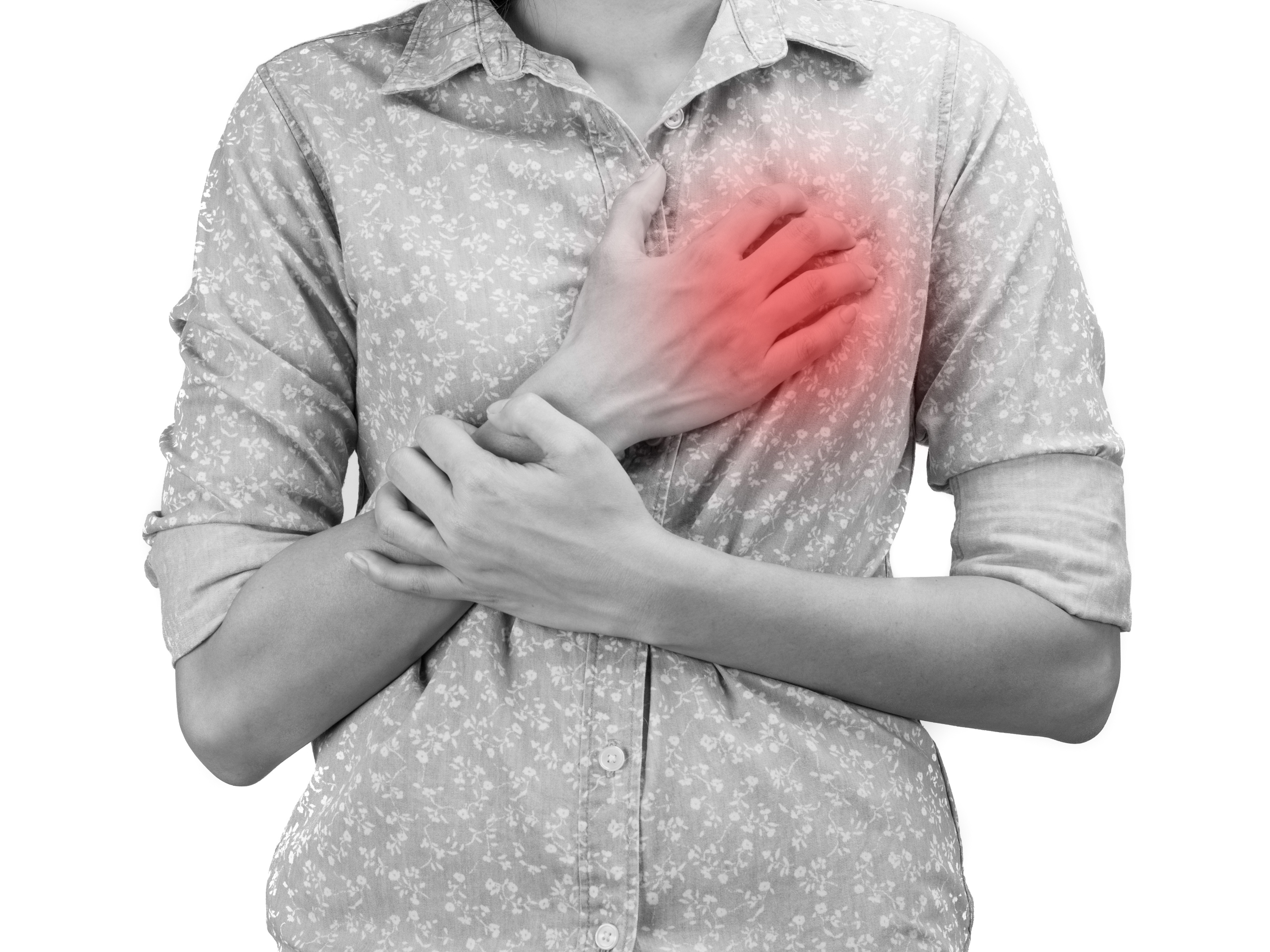Get Easy Health Digest™ in your inbox and don’t miss a thing when you subscribe today. Plus, get the free bonus report, Mother Nature’s Tips, Tricks and Remedies for Cholesterol, Blood Pressure & Blood Sugar as my way of saying welcome to the community!
Listen when your tell-tale heart signals danger

For most victims of heart attack, that far-too-often deadly event occurs as sudden cardiac arrest. That means your heart literally stops beating in your chest — and unless shocked back into rhythm with a defibrillator — you’ll likely to die in a matter of minutes.
The really scary thing about sudden cardiac arrest is that the event itself is usually the first sign that something is wrong. That’s why heart disease is the number one cause of death for both men and women in the United States.
But advanced warning that your heart is getting ready to experience a full-blown stoppage may not be as stealthy as you think.
In fact a study at Cedars-Sinai Medical Center has found there are early warning signs. The problem is that we just don’t recognize or heed them.
Heart attack signs that could save your life
It turns out that warning signs of a heart attack can actually crop up as early as four weeks ahead of a heart catastrophe. According to study author Sumeet Chugh, M.D., “Medical intervention at this early juncture — a time window that we didn’t realize existed — may be able to pre-empt the sudden cardiac arrest.”
Chest pain would be the most obvious indicator that your heart is in danger, followed by difficulty breathing.
But of the patients who experienced symptoms, 20 percent reported abdominal pain, nausea and vomiting, and back pain, while 10 percent reported flu-like symptoms, and 5 percent said they fainted.
These later symptoms are not what we’ve been typically warned of in regard to heart attack. In fact they could be tied to myriad health issues that are much less benign. So it’s not surprising that only 19 percent of these patients sought emergency help.
Should I stay or should I go?
When it comes to life and death, it’s best to risk embarrassment and make a, hopefully, unnecessary trip to the ER, than second-guess yourself.
For starters, anyone with a history of heart disease should seek medical attention when a symptoms crops up that’s out of the ordinary.
But even the young should be attentive to these signals. If you have a family history of conditions like diabetes or high blood pressure — precursors to metabolic syndrome — just get things checked out to be on the safe side.
Chances are those flu-like symptoms may just be the flu. However, if the symptoms go away then come back within a 24 hour period, it could be an indication of an underlying heart issue.
Guarding your heart
According to the American Heart Association, nearly 70 percent of the U.S. population has some sort of heart disease. And for the past 20 years, the heart industry has made high cholesterol the demon behind heart attacks and strokes.
But if you’re on statins you should know that while they may lower cholesterol, they also deplete your body of CoEnzyme Q10 (CoQ10) and without enough CoQ10 — a vital nutrient that provides cellular energy — your heart may fail.
In addition, these drugs can cause muscle fatigue. Hello — your heart is one BIG muscle.
So while all the attention has been on potentially-dangerous cholesterol-lowering drugs, there are really some very simple things you can do — without expense or harm — to boost your heart health and decrease your risk of heart attack.
One of the easiest is to simply increase your fiber intake.
According to information published in Hushed-up Natural Heart Cures, fiber intake by Chinese men and women is three times higher than in the U.S. And the average cholesterol level of the Chinese was only 127 mg/dL compared to 203 mg/dL for Americans. The Chinese also have a death rate 16.7 times lower than their American male counterparts.
Knowing your body so that you recognize signs of a heart attack can be lifesaving. But preventative steps, and there are many as simple and effective as this, can save you a lot of anguish in the long run. To learn more about keeping your heart naturally healthy, click here.












